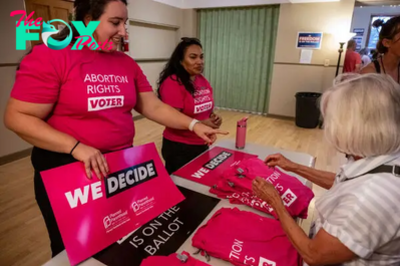Politics
These Are the Rules of the ABC Presidential Debate
Vice President Kamala Harris and former President Donald Trump will face off for the first time on Sept. 10, when the two presidential candidates are set to debate each other ahead of the presidential election.
The 90-minute debate will be hosted by ABC News in Philadelphia’s National Constitution Center at 9 p.m. ET, and will closely mirror the format used by CNN in the June debate between Trump and President Joe Biden. Both candidates will have two minutes to answer questions and two-minute rebuttals, with an additional minute to each candidate for follow-ups or clarifications. There will be no live audience, and both candidates will stand for the entire debate.
The terms had been somewhat contentious after Trump suggested he might back out and Harris’s campaign sought to change the rule on muted microphones, which will only be live when it is the candidate’s turn to speak. The two campaigns agreed to the ground rules set by ABC on Wednesday, setting up a critical opportunity for Harris and Trump to present their platforms and address the electorate as the Nov. 5 election approaches.
The two candidates are polling almost evenly in most key battleground states. New CNN/SSRS polls released Wednesday found that Harris is just barely ahead of Trump but within the margin of error in Georgia, Michigan, Nevada, and Wisconsin, while Trump leads by 5 points in Arizona and the two candidates are tied in Pennsylvania.
The last presidential debate proved to be a major turning point in the 2024 election cycle, with Biden's poor performance leading to his abrupt withdrawal from the race. His exit set the stage for Harris to lock up the Democratic nomination, creating a new dynamic in the race against Trump. The former President said in a Fox News town hall Wednesday that his strategy for the debate against Harris is to “let her talk” and to “sort of feel it out as the debate is taking place.”
Read More: Presidential Debates in History That Moved the Needle
The two candidates have not yet agreed to a second debate, though Trump proposed an additional meeting on Sept. 25 on NBC News.
Here’s a preview of the rules and what to expect in the Sept. 10 debate.
No live audience
Like the June debate, the Trump-Harris event will not have a live studio audience in an attempt to minimize disruptions during the debate. The move marks a departure from previous events, which have typically featured audience members who are instructed to remain quiet while the candidates are speaking.
The rule change was initially set by the Biden campaign, which argued in May that the debate commission’s “model of building huge spectacles with large audiences at great expense simply isn’t necessary or conducive to good debates.”
“The debates should be conducted for the benefit of the American voters, watching on television and at home — not as Entertainment for an in-person audience with raucous or disruptive partisans and donors, who consume valuable debate time with noisy spectacles of approval or jeering,” the Biden campaign said at the time.
Muted microphones
Also like the previous debate, microphones will be muted throughout the proceedings except when it is the candidate's turn to speak, a measure aimed at curtailing interruptions that have marred previous debates.
The standoff over microphones had threatened to derail the debate, with the Harris campaign calling for unmuted microphones. Trump had said the microphone rule “doesn’t matter to me” and that he would “rather have it probably on, but the agreement [for the Sept. 10 debate] was that it was the same as it was last time.”
The Harris campaign ultimately agreed to the muted microphone rule but said in a letter to ABC that she “will be fundamentally disadvantaged by this format, which will serve to shield Donald Trump from direct exchanges with the Vice President."
"Notwithstanding our concerns, we understand that Donald Trump is a risk to skip the debate altogether, as he has threatened to do previously, if we do not accede to his preferred format. We do not want to jeopardize the debate. For this reason, we accepted the full set of rules proposed by ABC, including muted microphones," the letter said.
However, unlike the Biden-Trump debate, a pool of White House reporters will be in the hall to hear any remarks that are muted for the wider television audience, according to the Associated Press.
No opening statements
Unlike debates in previous election cycles, there will be no opening statements. Instead, each candidate will deliver a two-minute closing statement at the conclusion of the debate. The debate will begin with the moderators introducing the candidates followed by a question, with candidates each allotted two minutes to respond. This will be followed by one-minute rebuttals and responses to the rebuttals.
Harris and Trump will not be permitted to ask questions of each other, and ABC News said that no topics or questions will be shared in advance with campaigns or candidates. The debate will be moderated by ABC’s David Muir and Linsey Davis.
Read More: Breaking Down the 2024 Election Calendar
Setup
Both Harris and Trump will stand at identical lecterns for the entire 90-minute debate, and a virtual coin flip administered by ABC News on Tuesday determined podium placement and the order of closing statements. Trump won the coin toss and decided to speak last during closing statements, while Harris selected the right podium position on the screen.
Each candidate will be provided with a pen, notepad, and a bottle of water on stage. No props or written notes will be allowed.
Commercial breaks
Similar to the June debate, the event will feature two commercial breaks during the 90-minute broadcast—a departure from traditional debates. However, campaign staff will be prohibited from interacting with their respective candidates during these intermissions, denying them the opportunity for strategic consultations or to touch up the candidates’ appearance.
More from TIME
-

 Politics17h ago
Politics17h ago‘I Don’t Feel Safe.’ Trans Texans Worry After ID Policy Change
-
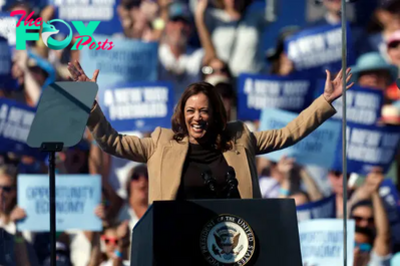
 Politics17h ago
Politics17h agoDon’t Underestimate Kamala Harris’ Good Vibes Only Campaign
-
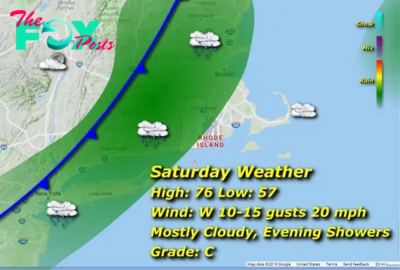
 Politics22h ago
Politics22h agoRhode Island Weekend Weather, Sept. 7/8, 2024 – Jack Donnelly
-

 Politics22h ago
Politics22h agoBusiness Beat: Engel & Völkers welcomes Rob Silva as Real Estate Advisor
-
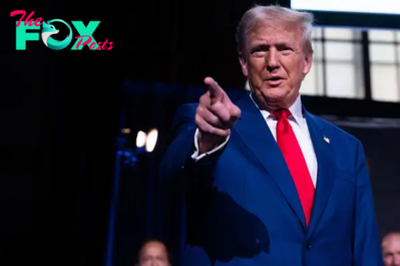
 Politics1d ago
Politics1d agoTrump Says He’d Create a Government Efficiency Commission Led by Elon Musk
-
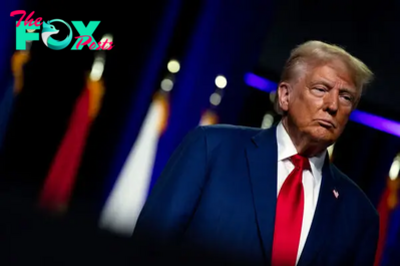
 Politics1d ago
Politics1d agoWhere the Koch Network Is Putting Their Money—Anywhere But Trump
-

 Politics1d ago
Politics1d agoCrossing state lines to get an abortion is a new legal minefield, with courts to decide if there’s a right to travel
-

 Politics1d ago
Politics1d agoAmericans Are Actually More Unified on Political Issues Than We Think
